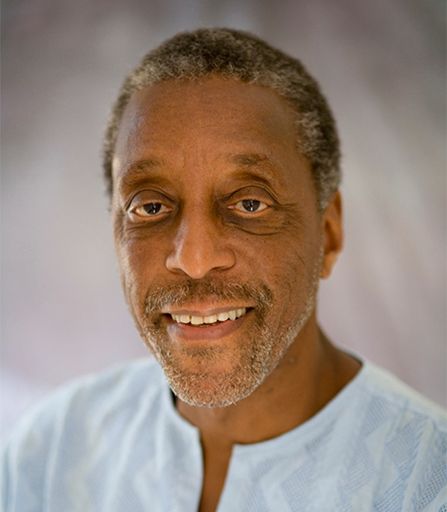31,
1940

06,
2022
Family and friends are invited to visit Bangs Funeral Home, 209 W. Green Street, Ithaca on Saturday, August 13, 2022 from 11:00am until 1:00pm. Memorial services will be announced at a later date.
Nearly 60 years ago, James E. Turner was a young graduate student, husband, father, activist, educator and one of the most influential voices in the Black studies movement. In an early article titled, Black students: A changing perspective, he centered the struggle of Black students to determine the kind of education they believed would most benefit themselves, their families and communities. This Dr. Turner described as “the quest for new values and definitions that are meaningful and appropriate for Black people, and which will give substance and significance to their lives.” He championed student-led activism as essential for achieving a purposeful and culturally relevant educational experience – the kind that affirms human dignity, cultural humility and social justice.
Dr. Turner received his undergraduate degree in Sociology and Political Economy from Central Michigan University (magna cum laude), and his graduate degrees from Northwestern University and the Union Graduate School, in Political Sociology and Urbanization and Social Policy. He also earned a certificate for courses taken in African Studies. While some students might have complained about the heavy academic workload, Dr. Turner focused on building his knowledge and skills in the areas of teaching, research and organizing for effective change. An avid reader, he was inspired by the perspectives of Malcolm X, Lerone Bennett, Dr. Gloria Joseph, W.E.B. Dubois, and Dr. Betty Shabazz on issues pertaining to racial solidarity, nation building and Pan-Africanism. At the advice of his Harlem-based mentor, Dr. John Henrik Clarke, Dr. Turner continued to advance his understanding of historical analyses of Black lives in diverse settings.
Before Mount Pleasant and Evanston, Dr. Turner’s parents Willie Turner, Jr. and Alfrieda Turner had raised their eight children in New York City to value education, Black culture and heritage. When he met Janice Pinkney in adolescence, it became clear that their families held these values in common. Later after they were married, the Turners continued to be impacted by racism and inequities in the city’s education system. Low teacher expectations and the unwillingness of school counselors to share information with Black youth about how to access needed resources were obstacles to pursing a college education. Having become friends with Malcolm X, the Turners shared what they had learned about academic and housing programs for married students at Central Michigan University and their decision to move to Mount Pleasant.
As a graduate student at Northwestern, Dr. Turner developed a national reputation as a trusted and skilled organizer of Black students. Also, an effective educator, he received lectureships at Northwestern and the University of Wisconsin. Later, Dr. Turner became an Assistant Professor at the Center for Inner-City Studies at Northeastern Illinois University. These experiences prepared him for success as a Visiting Professor at Saint Peter’s College and the African and Caribbean Studies Center at Fisk University.
In 1969, the Cornell University administration invited Dr. Turner to join the faculty where he became the founding director of the Africana Studies and Research Center. His appointment was the result of direct action by Black students who demanded that the university support the inclusion of Black Studies under Dr. Turner’s directorship. During his tenure, he created a space for the kind of intellectual discourse and “specialization of expertise” that students and young professionals had been waiting for. His work focused on designing curriculum; individual and group study opportunities; policy development; and recruiting and mentoring cadres of committed faculty who understood the critical importance of authenticity and truth in the continued development of scholarly work on Black life throughout the African Diaspora. The Center became a hub of education and intellectual productivity where generations of scholars and practitioners interacted and thrived. Dr. Turner treasured the relationships he nurtured with students, their families, colleagues, communities and organizations. He was particularly thrilled to meet multiple generations of students from the same family in some of his classes.
Under Dr. Turner’s directorship, the Center became an exemplary model of intellectual excellence for other programs and departments on campuses throughout the U.S. and globally. Dr. Turner was frequently invited by students, faculty, staff, and administrators to consult around the development and sustainability of their academic programs. Temple University’s Center for African American History and Culture (where he was a Visiting Fellow in 1990) and the African American Studies Program at the University of Pittsburgh are among the institutions where Dr. Turner was welcomed to share his expertise and support.
Through the decades, Dr. Turner developed a program of scholarship that centered his interests in Black Social Movements, Political Sociology, African American Political History and Philosophy, African politics and the Political Economy of African American Social Development. He also engaged his students in discourses around disparities in education, housing, health and employment, as well as their roles in promoting positive experiences and conditions within their families and communities. His publications include contributions to the Cornell Review, the Western Journal of Black Studies, Black Books and Bulletin, the Journal of Negro Education, Black World, The Black Scholar, Studia Africana, The Black Collegian, Journal of Black Studies, and the Journal of American Ethnic History. The book he edited, The Next Decade: Theoretical and Research Issues in Africana Studies is widely regarded as seminal in the field. Dr. Turner also served as a consultant on award winning media projects including the widely acclaimed, Eyes on the Prize television series.
Concerned about the historical challenges that Black women in academia faced when it came to promoting their work, Dr. Turner developed the vision and direction for two Africana Center sponsored summer institutes that focused on critical theory, the work of Black women scholars and Africana Studies. In 2002, the first Institute was titled, Holding Up Both Ends of the Sky: Engendering Africana Studies and received funding from the Ford Foundation. Due to its overwhelming success, Dr. Turner convened a second Institute in 2003. Institute scholars and fellows represented diverse college and university campuses. In 2002, among the scholars were Dr. Sharon Harley, Dr. N’Dri T. Assie-Lumumba, Dr. Delores Aldridge, Dr. Anne Adams, Dr. Bettye Collier-Thomas, Dr. Beverly Guy-Sheftall, Dr. V.P. Franklin, Dr. Eleanor W. Traylor, and Dr. Margaret Washington. In 2003, fellows were affiliated with such institutions as Dillard University, Clark Atlanta University, University of Massachusetts, Amherst, Harvard, Northern Illinois University and the University of California, Berkeley, just to name a few.
In addition to his teaching and scholarly work, Dr. Turner worked closely with students, colleagues and communities to effect positive change regarding social justice concerns. He was a fierce opponent of the apartheid systems in South Africa and the U.S. and worked with campus allies to educate the public around key concepts and push for the divestment of corporate interests and funding in South Africa. He was the founding member of the Board of Directors of Trans Africa Forum and Chairperson of the National Malcolm X Commemoration Commission. Dr. Turner also held leadership roles in the National Council of Black Studies and the African Heritage Studies Association. He was an active participant and supporter of many other organizations such as the Association for the Study of African American Life and History, the National Black Child Development Institute, Association for the Study of Classical African Civilizations, the National Alliance of Black School Educators and the National Association of Black Social Workers. In the Ithaca area, Dr. Turner served on numerous community boards and supported the work of local educators, practitioners and leaders who were committed to anti-racist practices, healthy youth development, and community wellbeing. He was enormously proud to be affiliated with all who advocated for these important issues, such as the Community Leaders of Color (CLOC), the Greater Ithaca Activities Center (GIAC), the Southside Community Center and the team responsible for the J. Diann Sams African American History Month Recognition Award.
Dr. Turner was passionate about the importance of lifelong learning, particularly when it came to studying African history and culture. He traveled worldwide to learn about the experiences of Black people in Africa, South America, Europe and the Caribbean from academic counterparts and everyday people in urban areas and rural villages. Dr. Turner received invitations to present at numerous international conferences, community gatherings and traditional ceremonies. As part of his leadership responsibilities at the Sixth Pan African Congress at the University of Dar es Salaam, Tanzania in 1974, he introduced a delegation of students and faculty from the Africana Center. While in Tanzania the group learned about the experiences of community members from their own voices, participated in intercultural learning activities and formed new relationships. During a special ceremony at Kivukoni College, Dr. Turner presented a gift of agricultural equipment to support the work of small farms. With gratitude, Mr. Ramadhani, the Chairman of the Kerege Ujamaa village accepted the gifts on behalf of the local farmers and invited Dr. Turner to deliver remarks about the work of the Africana Center and the significance of their partnership.
A man who held many passions, Dr. Turner enjoyed listening to different genres of music including jazz, reggae, gospel, rap, R&B and the blues. Over many years, he amassed an impressive collection of albums and CDs that featured his favorite artists and musicians. He enjoyed good food with family and friends and was known to sometimes save dessert for a late night snack with his children and grandchildren. Anything chocolate would be a top preference with banana pudding, carrot cake, or ice cream as close seconds. When Dr. Turner needed to get away from his busy schedule for a short while during the day, especially during the summer months, one might find him on a park bench with a sandwich and/or fruit smoothie in hand. As a member of the campus wellness program, Dr. Turner found joy in working out in the gym, attending a “Ripples” class and showing up for a yoga session led by his favorite instructor, Lisa. While not always easy, he tried to strike a good balance among work, family and health promotion activities. For him, this was a work in progress.
Having received hundreds of awards and commendations for his leadership, program and partnership work, Dr. Turner found the rewards associated with learning new things; helping students and colleagues navigate difficult situations; and participating with youth, families, communities and organizations in pursuit of social justice, far more gratifying.
Dr. James E. Turner died on August 6, 2022. He has left a whole community to remember, protect and preserve a lifetime of his loving contributions. He is survived by his wife Janice, daughter Sekai and sons Hassan (Veronica), Tshaka (Amey), and Robbie (Rockette); two sisters, Harriet Williams (Maurice, deceased), and Roz Acree; a brother Wilburt Turner (Blanca Moore); a cousin, Mary Calahan Cheek (William, deceased); grandchildren, Charis, Asaru, Jared, Hadia, Chinua, Karah, Safiyah and Tsehai; sisters-in law Sylvia Miller, Sonja Johnson, Jane Stevens, Ruth Bledsoe, Rita Hiller; brothers-in-law, Thomas Miller, Lawrence Pinkney and Paul Bledsoe; nieces Kimberly Miller, Quawaii Pinkney, Qwamonie Stevens, Nyla Fitzhugh, Aziza, Ayanna and Akilah Bledsoe, Delores Williams, Aziza and Anaysa Turner; nephews, Christopher Brown, Avery Williams (deceased), Sundiata and Kwame Acree, Kenyatta Turner, Trent Fitzhugh (deceased), Nigel Simmons, Lawrence Pinkney Jr., Trenton Turner, Clarence and Raymar Stevens; and a bundle of beloved grand-nieces and nephews.
To all his many cherished friends in the boroughs of New York City; Greensboro, Pittsburgh, Evanston, Boston, Ithaca, Accra, New Orleans, Dar es Salaam, Baltimore, Atlanta, the District of Columbia and all other points along the way, we are grateful for your love, respect and faith.
To order memorial trees or send flowers to the family in memory of James E. Turner, please visit our flower store.




